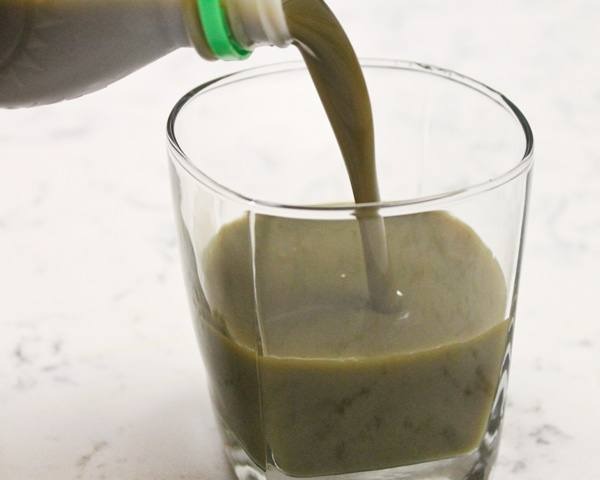The Store-Bought Green Juice Taste Test
Green juice — we have been hearing about it, buying it, or avoiding it altogether for quite some time now, Gwyneth Paltrow swears by it, The New York Times has reported on the green stuff several times, and countless health magazines have featured the green bottles on their covers. There is a $258 billion U.S. market for nonalcoholic drinks, and green juice's sector accounts for $3.4 billion of the market (as of last year). But we just have to know: which is the best for you — and the best-tasting? Is there any benefit to homemade over store-bought? And what even is cold-pressing?
Click ahead for The Store-Bought Green Juice Taste Test Slideshow
Of course, green juices weren't always such a hit at the juice bar or in stores; so why have these juices become popular, or seemingly trendy, all of a sudden? Experts say it's thanks to the ever changing food culture of today. "Because we live in an increasingly toxic world, the need for detoxification has become well recognized," says Dr. Ruthie Harper, who has appeared on CBS's The Doctors and Good Morning America. "Juicing is a quick and easy way for people to detoxify. Combine this with juicing's ability to quickly help you lose a few pounds, and it has become a popular way to improve your health and lose weight."
But the question remains whether it's better to buy juice at the store, or make it at home. A con of store-bought juices is, obviously, the freshness of the product. "If you choose to purchase prepackaged juice I always recommend that you look inside the bottle," explains Melissa Freedman, the creator of Cleanse Chick and certified health coach. "If you see that all of the color has dropped to the bottom, the juice is not as fresh as it can be... [You should] consider going to a local pressed juice location." Another factor to consider when buying juice at the store: additives. "Store-bought juices can often have additives, which help keep them fresh longer," says Justine Thorner, board-certified health coach and yoga instructor. "Never trust a juice if it has a shelf life of more than one week." Like many experts, Freedman believes juicing at home is the healthiest option. "I think it's better to make at home is because you know about the quality of the ingredients and the freshness of the juice."
Keep in mind there are different types, sizes, flavors, and methods to green juices. Cold-pressing means that the juice is extracted by crushing the fruit or vegetable, and then pressing it to get the highest yield of juice. This is all done in a cold setting, so that no nutrients in the fruit or vegetable are damaged and enzymes stay intact. Pasteurization means that the juice is heated to kill any bacteria, molds, and unwanted organisms. Many juices, not just green juices, are pasteurized because it extends the shelf life of a product. Another method is called high-pressure pascalization (HPP), which uses high-pressure chambers instead of heat to inhibit bacteria growth; HPP also naturally extends shelf life. Depending on what brand (and what price you are willing to pay), your juice is most likely processed by one of these methods.
Store-bought green juices may seem like a new concept, but in fact, some of them have been around longer than you think. Evolution Fresh launched in 1993 and started making the green juices from day one. Today, the company is owned by Starbucks but still distributes to many health food grocers in addition to Starbucks locations. Naked and Odwalla both began juicing nearly 30 years ago.
Since we're still hoping to keep our bikini bods long after Labor Day, we decided to test several store-bought green juices — after all, not everyone has the time to chop, blend, purée, and make juice at home. Still, despite our own taste buds (and bravery, for those of us who were willing to down juices in all shades of green for the purpose of this investigation), it's not to say that these 10 store-bought green juice brands are bad for you. "I believe that homemade juices are better than store-bought because they are fresher and you know exactly what is being put into them," Thorner says. "However, I would recommend drinking a juice from a store brand over not juicing at all."
Click ahead to find out which bottled green juice is right for your diet — and taste buds.
